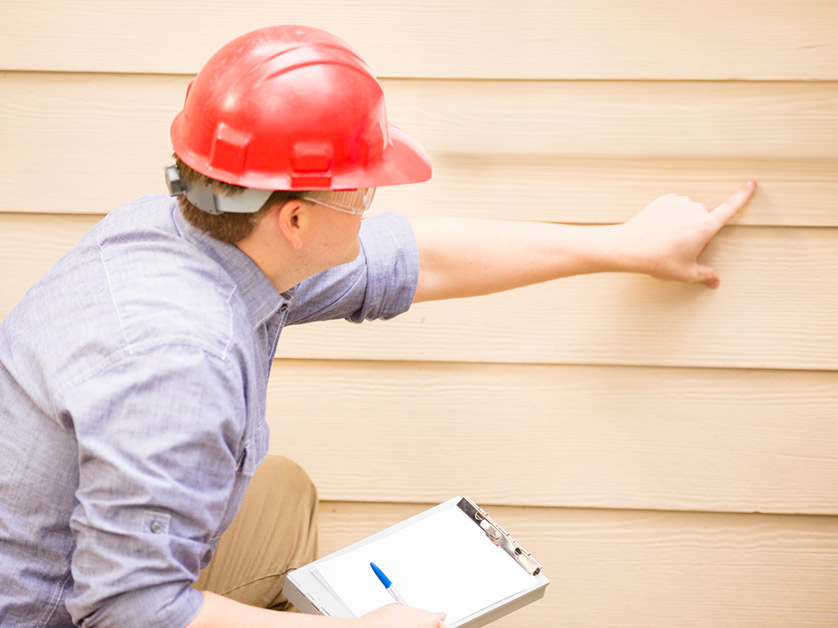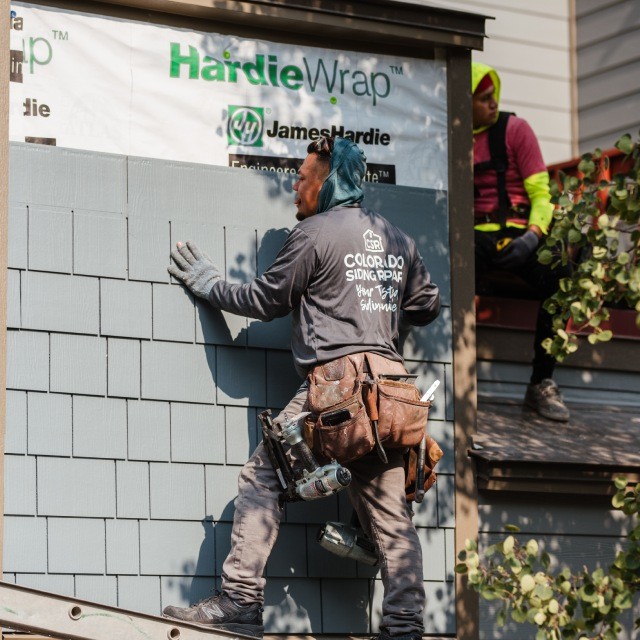Morris Siding Contractor Providing Energy-Efficient Home Exterior Installations
The Important Guide to the Various Kinds Of Exterior Siding and Their Distinct Benefits
In the realm of home enhancement, picking the ideal house siding is an essential choice that impacts both visual allure and practical efficiency. With so several options to think about, which house siding product really stands out for your specific task?
Timber House Siding
Timber siding, a prominent selection for domestic exteriors, uses a timeless visual that integrates all-natural appeal with structural stability. This house siding product is readily available in various styles, consisting of clapboard, roof shingles, and board-and-batten, enabling home owners to customize their appearance to match their design preferences. Wood home siding is generally crafted from long lasting types such as cedar, redwood, or ache, which are recognized for their strength and ability to stand up to ecological stressors.
One of the main benefits of wood home siding is its excellent insulation homes, which can add to power performance and lower home heating prices. Furthermore, timber siding is biodegradable, making it an eco-friendly choice when sourced sustainably. Normal maintenance, including painting or discoloration, can lengthen its life-span and boost its look, allowing home owners to maintain the natural beauty of the timber.
Nonetheless, potential drawbacks consist of vulnerability to insects, rot, and climate damages, requiring ample treatment and upkeep - morris siding contractor. In spite of these worries, when appropriately looked after, timber siding can offer a attractive and durable service that improves the personality of a home while providing a warm, inviting atmosphere

Plastic House Siding
Plastic house siding has actually arised as a leading option for home owners looking for a low-maintenance outside choice that integrates durability and affordability. This versatile material is crafted from polyvinyl chloride (PVC), making it immune to various weather, consisting of dampness and UV rays. Because of this, plastic home siding does not warp, rot, or fade, ensuring durable visual allure.
One of the key advantages of vinyl exterior siding is its substantial series of designs and shades, allowing property owners to achieve the wanted appearance for their residential property without the need for frequent repainting. In addition, vinyl home siding is very easy to install, which can significantly lower labor expenses throughout building and construction or remodelling jobs.
Plastic siding likewise adds to power effectiveness. Numerous choices attribute insulation backing, which boosts thermal performance, assisting to preserve comfy indoor temperature levels and potentially reducing energy bills. Its smooth surface area assists in simple cleaning, needing only routine cleaning with a yard tube to get rid of dust and particles.
Fiber Concrete Siding
Fiber concrete home siding has acquired grip among builders and home owners alike as a result of its exceptional combination of longevity and aesthetic flexibility. Made up of a mix of cement, sand, and cellulose fibers, this exterior siding alternative is crafted to stand up to extreme climate conditions, consisting of high winds, heavy rainfall, and temperature level changes, making it a durable option for domestic outsides.

Among the primary benefits of fiber cement house siding is its resistance to bugs, such as termites, and its non-combustible nature, offering improved fire safety and security. morris siding contractor. In addition, it is offered in a vast variety of structures, styles, and shades, allowing home owners to attain their about his preferred aesthetic without sacrificing efficiency
Another benefit is its low upkeep requirements; fiber concrete exterior siding usually requires paint or staining every 5-10 years, which is less constant than other products. Its longevity contributes to a lower overall cost of possession, as it lowers the need for frequent repairs or replacements.
Ultimately, fiber cement home siding represents an excellent financial investment for those seeking a resistant, attractive, and versatile exterior option, combining both form and function to boost the home's visual allure.
Steel House Siding
The attraction of steel home siding depends on its robust toughness and modern-day visual charm, making it a preferred choice for contemporary style. Readily available in products such as light weight aluminum and steel, steel home siding uses a variety of shades and finishes, allowing homeowners to achieve a personalized appearance that matches their design vision.

Power efficiency is another significant advantage, as many metal exterior siding products are developed with insulation options that help regulate indoor temperature levels. This can lead to decreased energy costs over time. Additionally, steel house siding is often recyclable, making it an eco-friendly choice for sustainability-minded property owners.
The installation process for steel siding can be fairly simple, resulting in a quicker turn-around time for building and construction tasks. Generally, metal siding combines capability and design, making it a sensible alternative for those looking for a long-lasting and visually appealing exterior finish.
Block and Stone Siding
Block and stone siding attracts attention as an ageless option that enhances the visual charm of any kind of home. Understood for their sturdiness and low upkeep, these materials give a remarkable roi while raising the check that residential property's curb charm. Available in numerous colors, structures, and patterns, brick and rock can be tailored to fit varied architectural designs, from conventional to modern-day.
One of the primary advantages of block and rock siding is their energy performance. Both materials possess natural protecting buildings that help regulate indoor temperature levels, potentially decreasing heating & cooling expenses. Additionally, they provide premium fire resistance compared to other home siding options, adding to improved safety.
Another advantage is their durability. Block and stone can last for decades, typically calling for very little maintenance past periodic cleaning. Unlike wood siding, they are unsusceptible parasites and rot, making certain a long-lasting exterior that withstands the elements.
Conclusion
In recap, the choice of exterior siding significantly influences a home's aesthetic allure, energy performance, and maintenance needs. Each type of siding-- whether timber, vinyl, fiber brick, concrete, or metal and stone-- supplies special advantages tailored to numerous property owner choices and environmental conditions.
One of the main advantages of wood home siding is its outstanding insulation residential or commercial properties, which can add to energy performance and lower heating prices. Additionally, wood house siding is biodegradable, making it an ecologically pleasant choice when sourced sustainably.One of the primary benefits of steel house siding is its resistance to various environmental aspects.Power efficiency is one more significant advantage, as lots of steel siding products are created with insulation alternatives that aid regulate interior temperatures. Each type of home siding-- whether timber, plastic, fiber metal, brick, or cement and rock-- supplies unique benefits tailored to numerous property owner preferences and ecological problems.